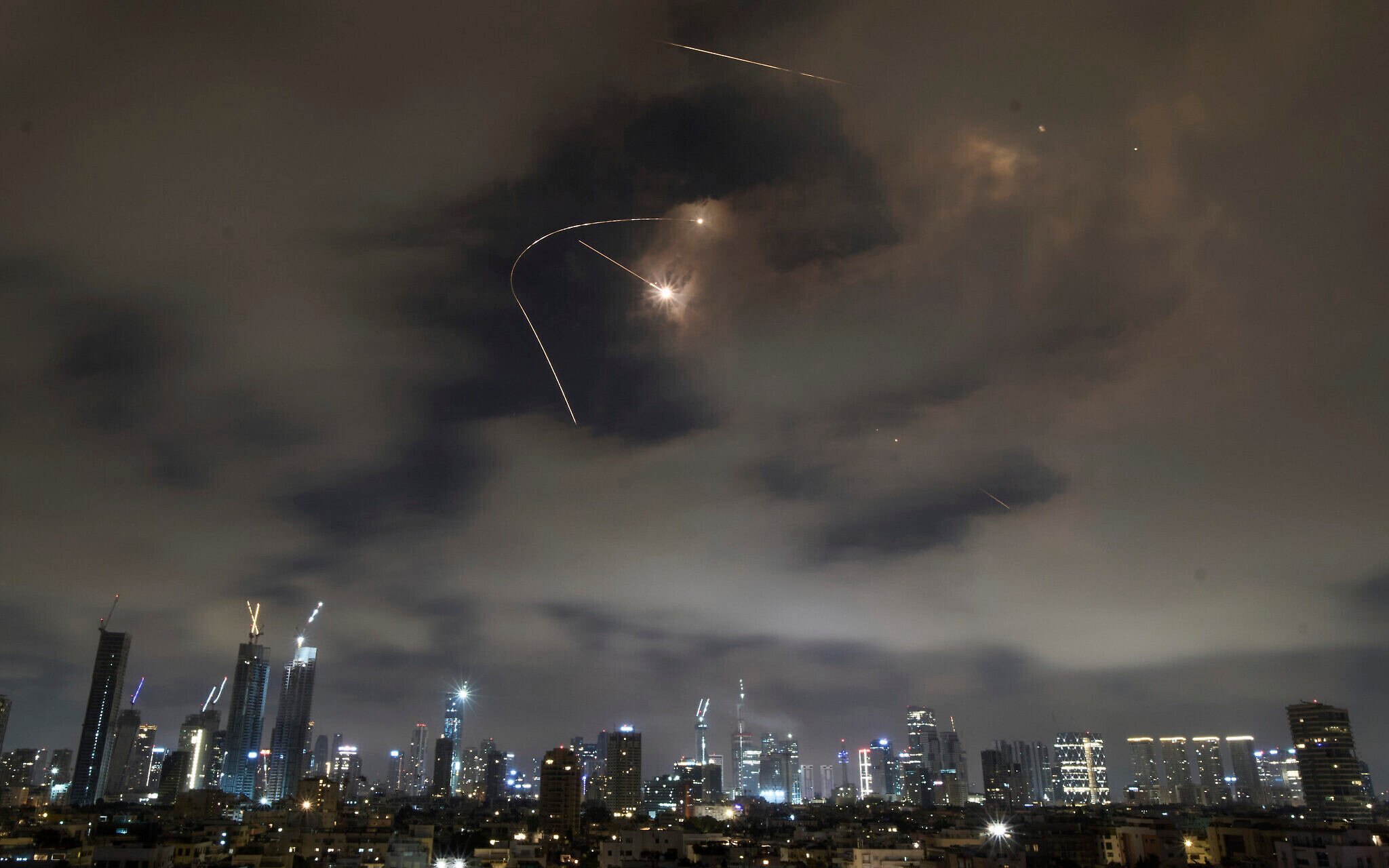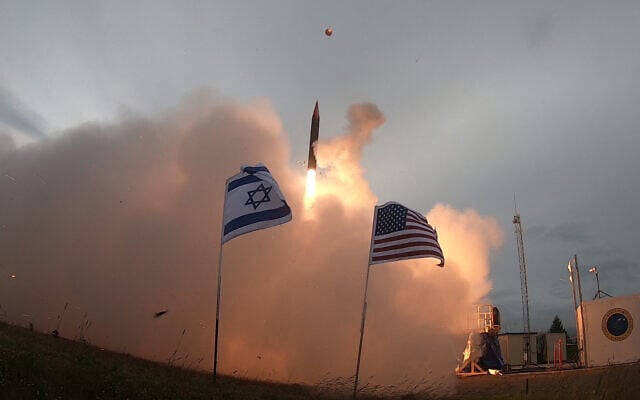



Israel is not running low on air defense interceptors amid its conflict with Iran, the military indicated Friday, denying reporting that the IDF’s stockpile of interceptor missiles is being depleted.
The Israel Defense Forces said it was “prepared and ready to handle any scenario,” but officially declined to comment on specific munitions matters.
Military officials have told The Times of Israel that the operation in Iran was planned months in advance, and the planning took into account Iran’s stock of ballistic missiles and drones that it could fire at Israel.
Taking Iran’s stockpile into account means the IDF prepared ahead of time with enough interceptors to handle the threat.
IDF Chief of Staff Lt. Gen. Eyal Zamir said Friday evening that “we launched the campaign when Iran possessed around 2,500 surface-to-surface missiles,” while warning Israelis to brace for a “prolonged” conflict.
Additionally, the IDF is actually running through fewer interceptors than it anticipated at this point in the operation.
The IDF estimated that Iran would fire several hundred ballistic missiles at Israel in its initial response. In reality, it mustered just 100.
In all, some 470 ballistic missiles have been fired from Iran at Israel in the past week, below the IDF’s “reference scenario” for the operation.
Most of the Iranian missiles fired at Israel in recent days have been intercepted, at similar rates to Iran’s attacks in 2024, according to the IDF.
Military officials said 5-10 percent of the missiles “leak” through and impact Israel. This includes missiles that the IDF says it does not try to shoot down “according to protocol,” allowing them to strike open areas without causing damage to any critical infrastructure, as well as missiles it failed to intercept which hit urban areas and caused casualties and damage.
The military has routinely emphasized that, as good as Israel’s multilayered air defenses are, they are not hermetic.
In a rare Hebrew television interview on Thursday, Prime Minister Benjamin Netanyahu was asked about Israel’s reportedly depleted stock of Arrow missile interceptors, saying the US was resupplying them while stressing Israeli operations to destroy Iranian ballistic missile launchers.
Despite the Israeli denials, the Wall Street Journal again reported Friday that Israel is running low on missile interceptors, quoting a US official warning that the IDF’s stores of Arrow-3 could dry up if the conflict continues for several more weeks.
According to the report, the US is making efforts to boost Israeli defenses, including by resupplying a Terminal High Altitude Air Defense (THAAD) air defense system it deployed in Israel last year, and by sending a fourth naval destroyer to the region decked with ballistic missile interceptor systems.
Times of Israel staff and agencies contributed to this report.

